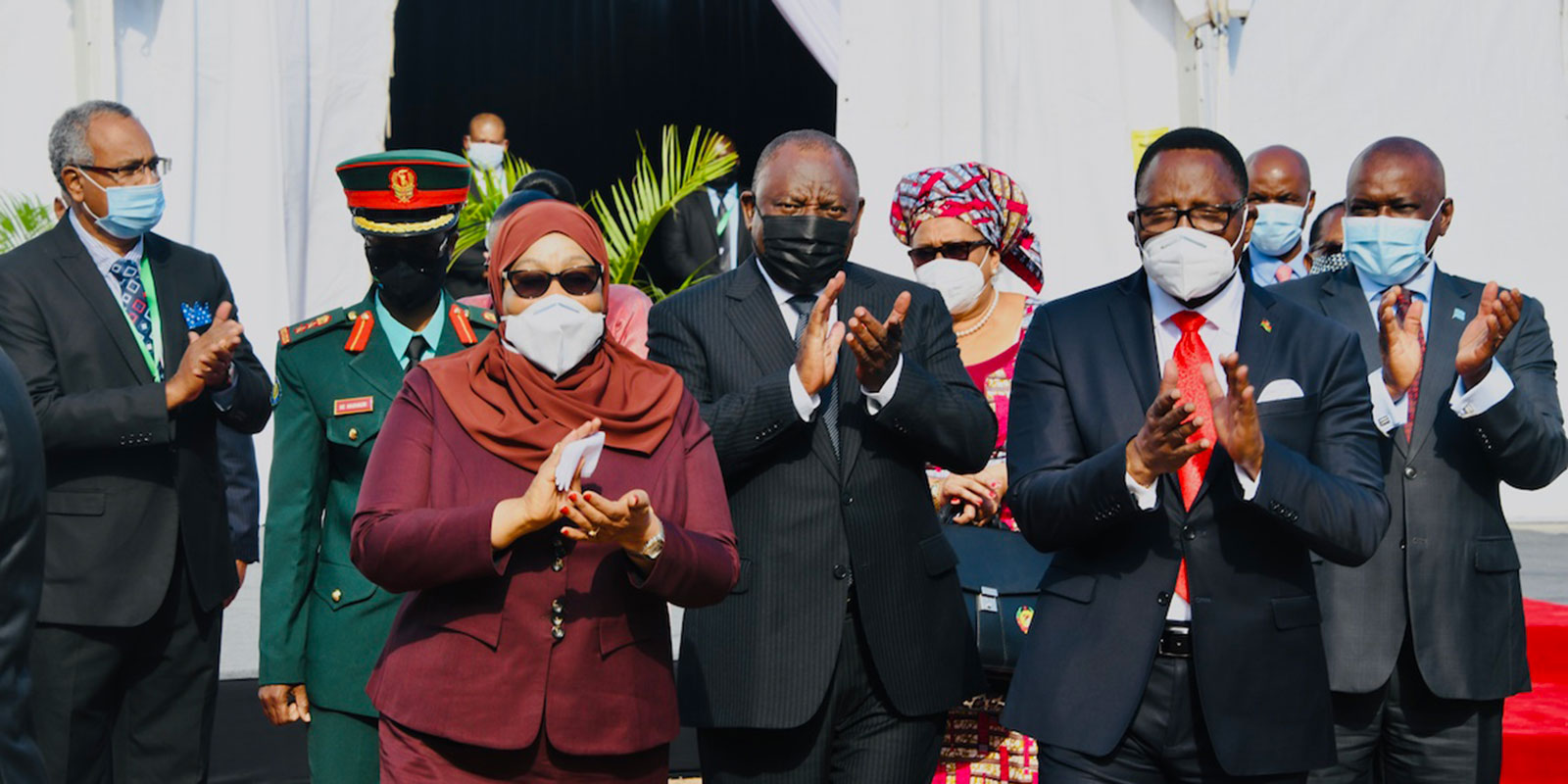The SADC Mission in Mozambique (SAMIM) will be deployed to support Mozambique’s efforts in combating terrorism and acts of violent extremism orchestrated by non-state armed actors in Cabo Delgado, its gas-rich northernmost province bordering Tanzania. The SAMIM will be drawn from the SADC Standby Force, established in 2007, whose primary function is to participate in peace support missions as envisaged in Article 13 of the Protocol Establishing the Peace and Security Council (PSC) of the African Union (AU).
The brutal insurgency in #Cabo Delgado is amorphous and elusive
Tweet
Although the mandate and scope need further elaboration, it is clear that this will not be a peace support mission but rather a counter-insurgency and counter-terrorism operation. The SAMIM does not require explicit authorisation from the AU’s Peace and Security Council (PSC) or the UN Security Council (UNSC) if it is deployed in response to an invitation by Mozambique, but they should be informed. The mission will initially be funded through member state contributions, and SADC would further mobilise resources from the AU and the UN to support it.
The brutal insurgency in Cabo Delgado is amorphous and elusive. It has complicated local counter-terrorism operations, possibly fuelling other latent conflicts in that province and deepening the disorder that the violent attacks have already generated. The United Nations Refugee Agency (UNHCR) aptly calls it an “invisible humanitarian crisis” with more than 700,000 people internally displaced without adequate support nets. Added to this complexity are chronic under-development, poor governance, frequent natural disasters and recurrent disease outbreaks, including COVID-19; conditions that violent extremists could exploit to operate and build support. The insurgency has also reinforced concerns about maritime security in the Mozambique Channel, given the weakness of naval security along the East African coast and multiple security challenges, including drug trafficking and the potential resurgence of piracy. For South Africa and Tanzania and landlocked neighbours like Zimbabwe, Zambia, and Malawi that depend on Mozambique as a gateway for global markets, a regional military approach in Cabo Delgado protects trade routes, reinforces cross border security while minimising potential spill-over effects on trade, development and migration.
The decision is contentious in part because Mozambique is sensitive about its sovereignty, and because a SADC military deployment in Cabo Delgado will signal that it is a country in conflict. Mozambique has previously downplayed the threat the insurgency posed and has opted for more subtle external support, initially using Private Military Contractors (PMCs) to help fight the insurgency. It has also evoked its military cooperation agreements with countries like Russia, Portugal and the United States that provided training and logistical support to the Mozambican Armed Forces (FADM). At the Summit, SADC member states stressed that limited state capacity and porous borders made it a shared common security concern. It requires collective and collaborative solutions. The SAMIM is an invocation of the OPDSC protocol and the SADC Mutual Defence Pact that regulates relations between states in the area of collective self-defence. The idea is that when a country experiences an armed attack either from a state or non-state actors, two or more states can act together in supporting a victim country. This means that SADC has interpreted these challenges as a direct challenge to Mozambican sovereignty and wants to prevent the region from potentially becoming a haven for terrorist activities.
However, the SAMIM faces five acute challenges. It firstly has to grapple with the amorphous nature of the terrorist threat while avoiding over-securitising the crisis in Cabo Delgado. Given the confluence of factors including corruption, socio-economic grievances, marginalisation, historical ethno-linguistic conflicts, and others, over securitisation could be counterproductive.
The second issue surrounds the actual capability and operational preparedness of SADC to deploy such a force. SAMIM will be deployed using the SADC Standby Force, and although SADC has deployed two previous operations to Lesotho, this will be the first deployment of the SADC Standby Force into such a demanding mission. However, it builds on previous SADC experiences, such as when Angola, Namibia and Zimbabwe intervened in the Democratic Republic of the Congo (DRC) in 1998 and Tanzania, South Africa and Malawi deployed the Force Intervention Brigade (FIB) in the DRC in 2013.
The insurgency has also reinforced concerns about maritime security in the Mozambique Channel
Tweet
Thirdly, SADC has little experience in countering terrorism and preventing violent extremism, despite adopting a Counter-Terrorism strategy in 2015. While this strategy is classified, the implementation of global and continental counter-terrorism frameworks that preceded it suffered from haphazard institutional arrangements, lack of much-needed resources and a severe trust deficit. The development and implementation of national and regional counter-terrorism legislative instruments have also not been a top priority for SADC countries, Mozambique included. This includes the practical measures aimed at robust intelligence gathering, multi-agency collaboration, inter-agency and inter-state cooperation. SADC will thus need to learn from similar African experiences in Somalia, the Sahel and the Lake Chad Basin.
The SAMIM could also struggle with determining how to incorporate regional solutions into a complex crisis management landscape in Cabo Delgado, given the array of actors engaged there. There are still considerable gaps in the development of operational concepts, policies, and practices that would facilitate complementarity to national strategies developed by the Mozambican government. A holistic approach is needed, and so is transparency in the sharing of intelligence especially from the Mozambican side. Lastly, SADC needs to adopt a new mindset on the future of counter-terrorism missions beyond the initial deployment of the SAMIM. This implies declassifying relevant strategies that foster civil society’s active participation and leadership in both national and regional counter-terrorism strategies in a structured and meaningful way.
Dr. Dimpho Deleglise is an Associate Research Fellow at the United Nations University Institute on Comparative Regional Integration Studies (UNU-CRIS) and focuses on regional security cooperation in Africa.


